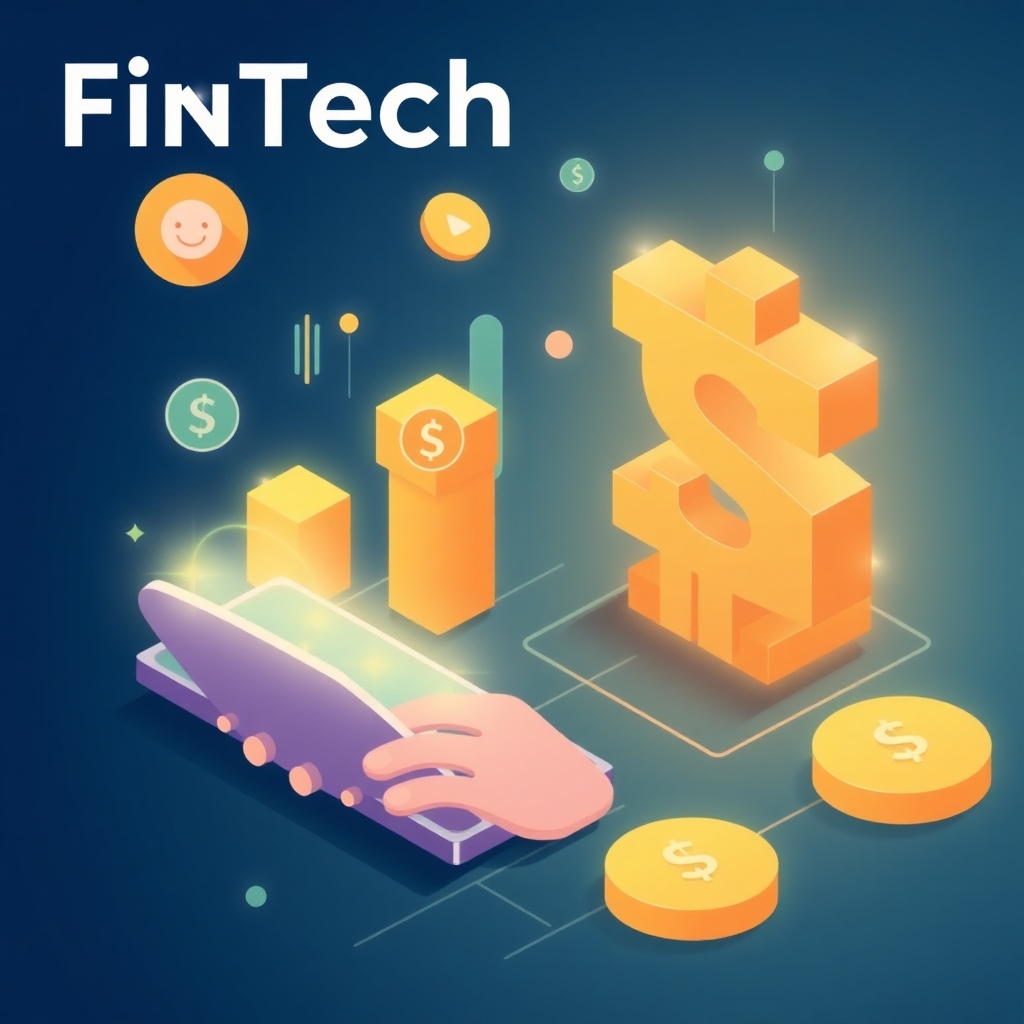
The world of finance has been fundamentally transformed in the past few decades thanks to financial technology—or FinTech. Innovations in digital banking, artificial intelligence (AI), blockchain technology, mobile wallets, and automated investment platforms are reshaping the way people manage their money, invest, and access financial services. FinTech has not only made financial tools more accessible, it has also made them more efficient, secure, and tailored to individual needs. Whether it’s budgeting, investing, or payments, FinTech is revolutionizing personal finance by providing tools that are intuitive, cost-effective, and capable of automating key financial processes.
In this article, we’ll explore how these FinTech innovations are changing the personal finance landscape, from budgeting apps to cryptocurrencies, and what the future holds for this exciting sector.
Overview of FinTech Innovations in Personal Finance
In the past, managing personal finances was a complex and often time-consuming process. You would need to keep track of paper statements, visit bank branches for transactions, and pay high fees for financial advice. Today, FinTech innovations have eliminated many of these obstacles, providing consumers with a suite of digital tools that allow them to manage their financial lives more effectively.
The digital transformation of personal finance is driven by a variety of FinTech solutions. These include mobile banking apps, AI-powered financial management tools, digital wallets, robo-advisors, peer-to-peer lending platforms, and even blockchain technology. Together, these innovations are democratizing finance by making essential financial services available to anyone with a smartphone and an internet connection.
Whether you’re managing a budget, investing for the future, or simply sending money to a friend, these tools are making it easier than ever to manage your finances. Let’s dive deeper into the most significant FinTech innovations shaping personal finance today.
Artificial Intelligence (AI) in Personal Finance
One of the most significant technological advancements in the world of personal finance has been the adoption of Artificial Intelligence (AI). AI is helping individuals make smarter decisions by analyzing large datasets, identifying spending habits, and even offering investment advice—all in real-time.
AI-powered budgeting and savings apps have made it easier for users to track and optimize their spending. Apps like Mint and You Need A Budget (YNAB) use AI to categorize expenses, monitor cash flow, and suggest ways to save. These apps automatically sync with bank accounts, credit cards, and investment accounts to give users a holistic view of their financial situation. For example, Mint alerts users when they are overspending in a particular category, making it easier to adjust habits and stay within budget.
In addition to budgeting, AI has revolutionized personalized financial advice through robo-advisors. Robo-advisors, such as Betterment and Wealthfront, use sophisticated algorithms to create personalized investment portfolios based on individual risk profiles and financial goals. These platforms not only help users diversify their investments but also provide tax-loss harvesting and rebalancing services, all at a fraction of the cost of traditional financial advisors.
By using machine learning algorithms, these AI tools continually improve their predictions and strategies, which means users get increasingly accurate advice as they use these services over time. Robo-advisors also allow investors to start with small amounts of money, making investing accessible to people who might not have large sums to invest upfront.
Blockchain Technology and Cryptocurrencies
Blockchain technology is perhaps one of the most disruptive forces in the world of FinTech today. At its core, blockchain is a decentralized, digital ledger that records transactions across many computers, making it nearly impossible to alter the data once it’s been added to the ledger. This transparency and immutability offer a new level of security for financial transactions.
Cryptocurrencies like Bitcoin, Ethereum, and Ripple are built on blockchain technology, providing a decentralized alternative to traditional currencies. While cryptocurrencies are still relatively volatile and speculative as investments, they represent a fundamental shift in how people view money and financial transactions. Cryptocurrencies are borderless, meaning they can be sent anywhere in the world without the need for intermediaries like banks.
For individuals, cryptocurrencies offer several benefits:
-
Lower Transaction Fees: Traditional banking systems charge fees for international money transfers, often taking days to process. Cryptocurrency transactions, however, can occur almost instantly and at a fraction of the cost.
-
Financial Inclusion: Blockchain allows individuals without access to traditional banking systems to engage in financial transactions. Whether it’s sending money to family members in different countries or buying goods online, cryptocurrencies can provide financial services to the unbanked population.
-
Privacy and Security: Blockchain’s decentralized nature means users have more control over their financial data. While cryptocurrencies do have security concerns, the blockchain itself is often considered more secure than traditional bank systems because it is harder to hack and manipulate.
While cryptocurrencies are often seen as a speculative investment, the underlying blockchain technology is being adopted across the FinTech sector to improve security, reduce fraud, and streamline transactions. For instance, many digital wallets and smart contracts in decentralized finance (DeFi) platforms rely on blockchain for their operations.
Digital Wallets and Contactless Payments
As we move towards an increasingly digital world, digital wallets have become one of the most widely adopted FinTech innovations. Digital wallets like Apple Pay, Google Wallet, and Samsung Pay store credit card and bank account information securely on your smartphone. With just a tap of your phone or smartwatch, you can make purchases without the need to carry physical cards or cash.
These digital wallets use near-field communication (NFC) technology to facilitate contactless payments. In addition to being convenient, contactless payments are also more secure than traditional swipe or chip cards. NFC payments are encrypted, and many digital wallets also use biometric authentication (such as fingerprint scanning or facial recognition) to add an extra layer of security.
Beyond simple payments, peer-to-peer (P2P) payment systems like Venmo, Cash App, and PayPal are also part of this trend. These platforms allow users to send money directly to others, whether it’s paying a friend back for lunch or sending money to a small business. The convenience and low cost of these platforms have made them increasingly popular, particularly among younger generations who prefer digital transactions over traditional bank methods.
The rise of digital wallets and contactless payments has also helped reduce the reliance on cash, a trend accelerated by the COVID-19 pandemic. As more people seek ways to avoid physical interactions, mobile payments and contactless cards are becoming the norm for everyday transactions.
Robo-Advisors and Automated Investment Platforms
Automated investment platforms, or robo-advisors, have changed the way individuals invest their money. Robo-advisors leverage AI and machine learning to automatically allocate your investment portfolio based on your financial goals, risk tolerance, and market conditions. Unlike traditional financial advisors, robo-advisors offer a cost-effective way to invest, often with lower fees and no minimum investment requirements.
Platforms like Betterment, Wealthfront, and Ellevest have brought investing to the masses, offering users diversified portfolios of stocks, bonds, and other assets. Robo-advisors automatically rebalance these portfolios to ensure they align with the investor’s risk profile and financial goals. Tax-loss harvesting, which reduces tax liabilities by selling losing investments, is another feature offered by some robo-advisors, helping investors save on taxes.
For those who want a more hands-off approach to investing, robo-advisors are a game changer. They allow users to benefit from professional-grade investment strategies without needing to be a finance expert.
Regulations and Security in FinTech
With the rise of FinTech, regulatory oversight has become more important than ever. As digital finance tools become more ubiquitous, security risks such as data breaches, identity theft, and fraud have become pressing concerns. However, FinTech companies are implementing various security measures to protect users’ financial data.
Regulations such as the General Data Protection Regulation (GDPR) in Europe and Payment Services Directive 2 (PSD2) have set high standards for data protection in the financial sector. These regulations ensure that users’ personal data is handled with the utmost care, providing transparency and giving consumers more control over their information.
FinTech companies also employ advanced security protocols, such as multi-factor authentication (MFA), end-to-end encryption, and biometric authentication to protect financial transactions. Blockchain technology also plays a significant role in securing financial data, as it provides a decentralized and tamper-resistant system for recording transactions.
Despite these innovations, the FinTech sector must continue to innovate in the field of cybersecurity to address emerging threats, including new forms of fraud and attacks targeting FinTech apps.
The Future of FinTech and Personal Finance
Looking ahead, the future of FinTech promises even more exciting developments. As new technologies like 5G, quantum computing, and machine learning continue to evolve, they will open up new opportunities for innovation in personal finance. 5G technology, for instance, will enable faster and more reliable mobile banking experiences, while quantum computing could revolutionize financial modeling, making it possible to predict market trends with greater accuracy.
Additionally, the rise of decentralized finance (DeFi) platforms, which aim to replace traditional banking and financial services with blockchain-based solutions, could fundamentally alter how people manage money. These platforms allow for peer-to-peer lending, borrowing, and investing, removing the need for intermediaries like banks.
With these advancements, FinTech will continue to empower individuals to take control of their financial futures, manage their investments more efficiently, and enjoy greater financial inclusion around the world.
FinTech innovations are revolutionizing personal finance by making financial tools more accessible, efficient, and secure. Whether it’s through AI-powered robo-advisors, blockchain technology, or digital wallets, these innovations are reshaping how we manage, invest, and save our money. As technology continues to advance, the future of personal finance will be defined by even greater automation, security, and personalization, offering consumers unprecedented control over their financial lives.
Visit our other website: https://synergypublish.com


